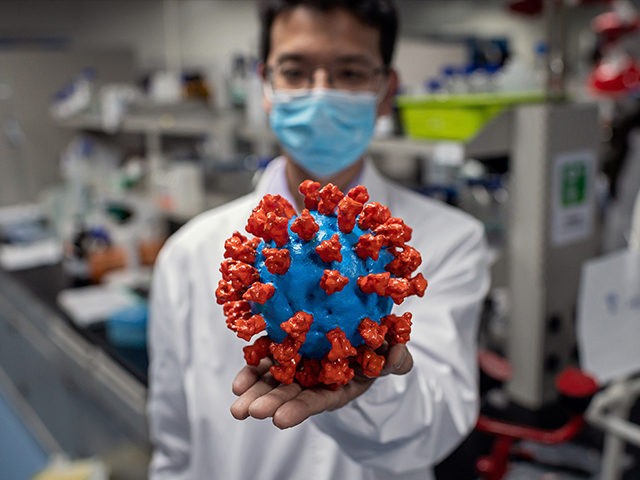A more contagious variant of the Chinese coronavirus first detected in the U.K. has surfaced in at least five states across the U.S., threatening to burden the already strained health care system further.
Joining at least 33 countries, health officials in Colorado (December 28), respectively followed by California (December 30), Florida (December 31), New York (January 4), and most recently Georgia (January 5), have documented their first case of the new strain. Most of those states have imposed strict mask mandates and lockdown measures, except Florida and Georgia.
On Wednesday, data posted on the official website of the U.S. Centers for Disease Control and Prevention (CDC) revealed the United States is home to at least 52 cases of the variant first identified in the U.K. — at least 26 new strain infections in California, 22 in Florida, two cases in Colorado, and one each in Georgia and New York.
CDC officials stressed that the 52 cases do not represent the total number of new variant infections circulating in the United States, but only those detected by analyzing Chinese coronavirus positive specimens. Not all of the infected take a test or end up in the hospital, particularly asymptomatics.
The CDC conceded that its tally might not immediately match those reported by state and local officials.
There are likely many more cases in the United States, experts reportedly say. Many of them have blasted the country for not boosting virus samples’ genetic sequencing to surveil for mutations. According to the CDC, it is “ramping up” sequence-based strain surveillance.
Several nations have also detected an additional variant, first identified in South Africa, that also appears to spread more easily. U.S.-based health officials have not yet found that strain on American soil.
The new variants emerged in the fall of 2020, CDC noted in a webpage last updated on Sunday. Currently, there is no evidence that the new strains increase the severity of the illness or intensify the risk of death, the CDC said, echoing the World Health Organization (W.H.O.), a United Nations entity.
Dr. Henry Walke, the incident manager for the CDC’s coronavirus response, told reporters last week:
We don’t know how widely the variant first identified in the U.K. has spread in the United States. We don’t know if the other variant that was first identified in South Africa is in the United States. We also still don’t know how widely these two new variants have spread elsewhere around the world.
During the same press briefing, Dr. Henry Walke, the incident manager for the CDC’s coronavirus response, added:
Because the variants spread more rapidly, they could lead to more cases and put even more strain on our heavily burdened health care systems. … We expect to see new variants emerge over time. Many mutations lead to variants that don’t change how the virus infects people.
The U.S. has reported a record number of infections, hospitalizations, and deaths in recent weeks, putting a strain on an already overburdened health system.
In a blog post, Dr. Ashish Jha, the dean of Brown University’s School of Public Health, wrote the new strain that originated in the U.K. would be behind the majority of new infections by March.
“The new strain is estimated to represent about 1% of all infections [in the U.S.] at this moment, but because of its increased contagiousness, the best estimates are that it will become a majority of all new infections by March,” Dr. Jha noted.
While more data is needed, the CDC and W.H.O. believe there is no current evidence the new strains will reduce the vaccines’ efficacy.
The coronavirus would “likely need to accumulate multiple mutations in the spike protein to evade immunity induced by vaccines or by natural infection,” the CDC noted.
Dr. Armstrong further explained:
From what we know from experience with this mutation and other mutations is that it’s unlikely to have a large impact on vaccine-induced immunity or on an existing immunity from previous strains. We do know that some of these mutations can result in reduced efficacy of [therapeutic agents such as] monoclonal antibodies … So the experts are generally in consensus that mutations like this are unlikely to cause a large impact on the neutralization [of the virus].
None of the individuals infected in the United States have a travel history, suggesting that the disease is already spreading from person to person inside the country.
USA Today reported on Tuesday:
The [new] strain [first detected in the U.K.] has been detected in at least 33 countries, including Australia, Belgium, Brazil, Canada, Chile, China, Denmark, Finland, France, Germany, Iceland, India, Ireland, Israel, Italy, Japan, Jordan, Lebanon, Malta, The Netherlands, Norway, Pakistan, Portugal, Singapore, South Korea, Spain, Sweden, Switzerland, Taiwan, Turkey, the United Arab Emirates, the United Kingdom and the United States.
Health officials in Nigeria have detected a third strain, but the CDC says there is no evidence it is more severe or more transmissible than the original virus.

COMMENTS
Please let us know if you're having issues with commenting.